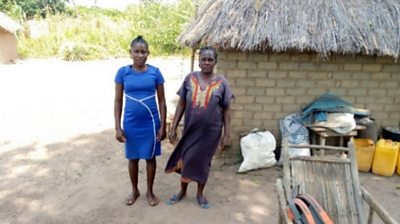
Angelina and Alberto Sidoro have four children, three girls and a boy. They live in Kpotonayo Boma of Tambura county, Eastern Equatoria. Their first-born daughter was still attending school when Alberto promised her to be married, against Angelina's wishes.
βI wanted my daughter to finish school so that she could help us in our old age,β Angelina said, explaining she did not manage to change her husbandβs mind. Alberto simply told her that she had no right to challenge him and that he was the one making the decisions at home.
Recently, Alberto wanted to marry off their second daughter, Monica, who is only 17 and still in school. He told Angelina that too many girls who are educated end up moving far away from their families and forget to help their aging parents. Again, Angelina was unhappy with this decision, but couldnβt think of how to change her husbandβs mind.
One day, a community mobilisation volunteer from Girls Education South Sudan brought a solar-powered, wind-up radio to start a listening group with Angelinaβs family. They were given a radio loaded with Our School episodes, made by ΒιΆΉΤΌΕΔ Media Action. One of the episodes focused on the long-term benefits of education. They listened to it together as a family and had a long discussion about Santina, the young woman featured on the radio programme. Santina had finished school, was working in a ministry and was helping her own family and her parents.
After talking it over at length and thinking about the benefits that Santina had brought to her family, Angelinaβs husband said he was open to giving Monica a chance to study.
He told me that now he understood how girls too could help [support their family] and he regretted marrying off our first daughter.β
He even decided to cultivate cassava to help support Monica to finish her education.
Angelina was extremely thankful for the community listening group and radio programmes, which convinced her husband to keep their daughter in school and encouraged him to find a way to pay for her education.
--
Between 2013-2018 ΒιΆΉΤΌΕΔ Media Action reached 2 million people with radio programme Our School, as well as 1,763 school communities through our community mobilisation activities. Over the next five years (2019 to 2024), we aim to again reach 2 million South Sudanese listeners through a second series of Our School and increase to 2,700 the number of school communities engaged with listening groups. We are also working with 31 local media organisations to develop their capacity and knowledge on gender and disability awareness, to help achieve more inclusive programming across the country.
In the first phase our focus was on identifying barriers to girlsβ access to education to help attain higher enrollment of girls. Now, in this second phase (2019-2024), we are continuing with that effort while also aiming to build positive knowledge, attitudes and behaviours around access to education for children and young people living with disabilities, and girls' sexual and reproductive health and rights.
Learn more about the project here.
Our projects in South Sudan
-
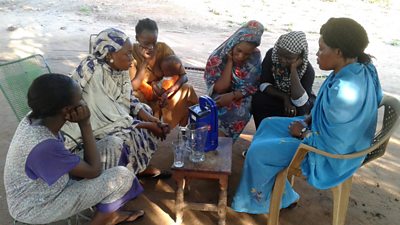
Life in Lulu: A beloved radio drama turns 10
Our radio drama Life in Lulu has covered a myriad of storylines in the last 10 years - from health and saving the lives of mothers and babies, to reducing conflict and promoting peaceful co-existence. -
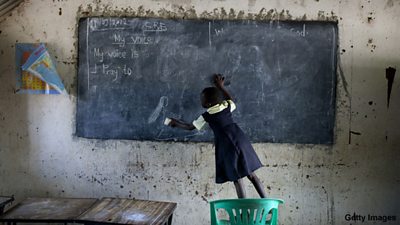
Our School: inspiring brighter futures for girls in South Sudan
A radio and outreach project aims to raise awareness of the importance of education for girls in South Sudan. -
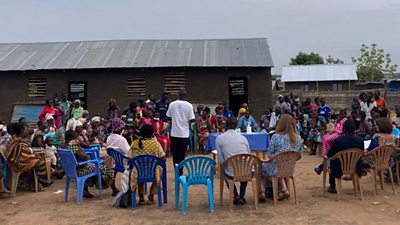
βLetβs Talk About Usβ - tackling taboos about reproductive health
Our radio programme is sparking conversations about sexually transmitted infections, child marriage, early pregnancy, gender-based violence, puberty, menstrual hygiene and contraception. -
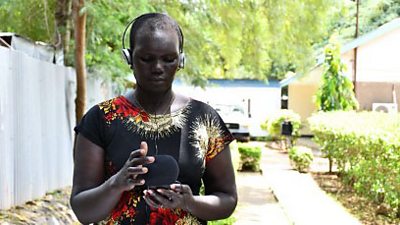
Building futures in South Sudan
Youth-focused radio programme Building Futures challenged negative perceptions of technical vocational education and training, and provided young people advice about job searching and starting their own businesses.